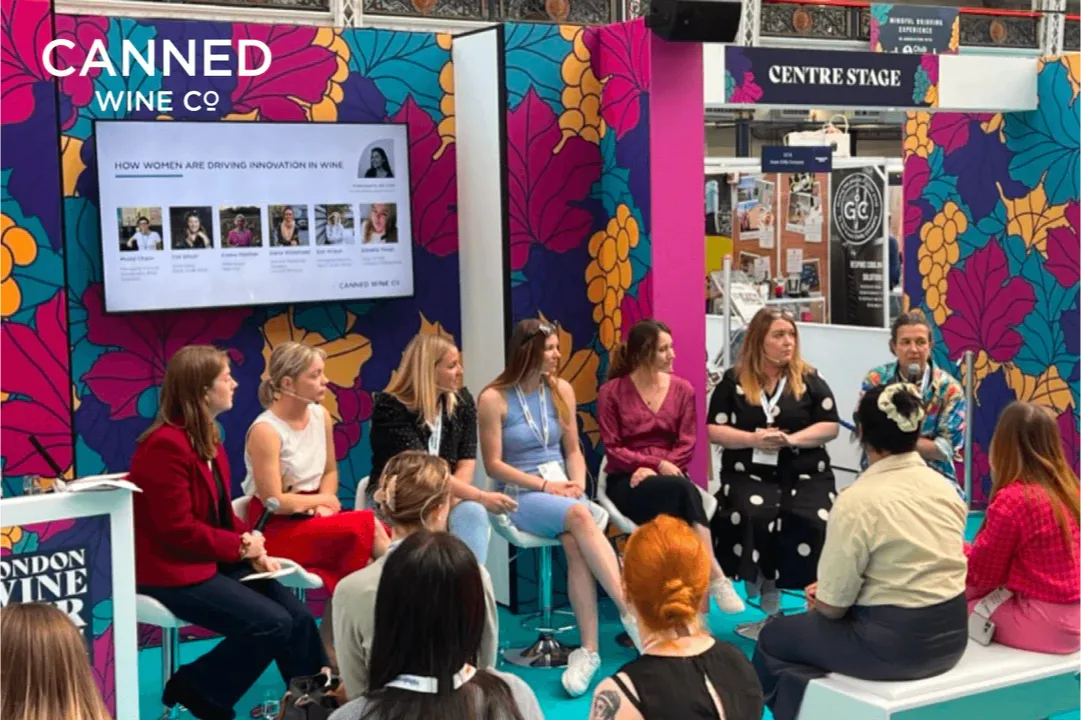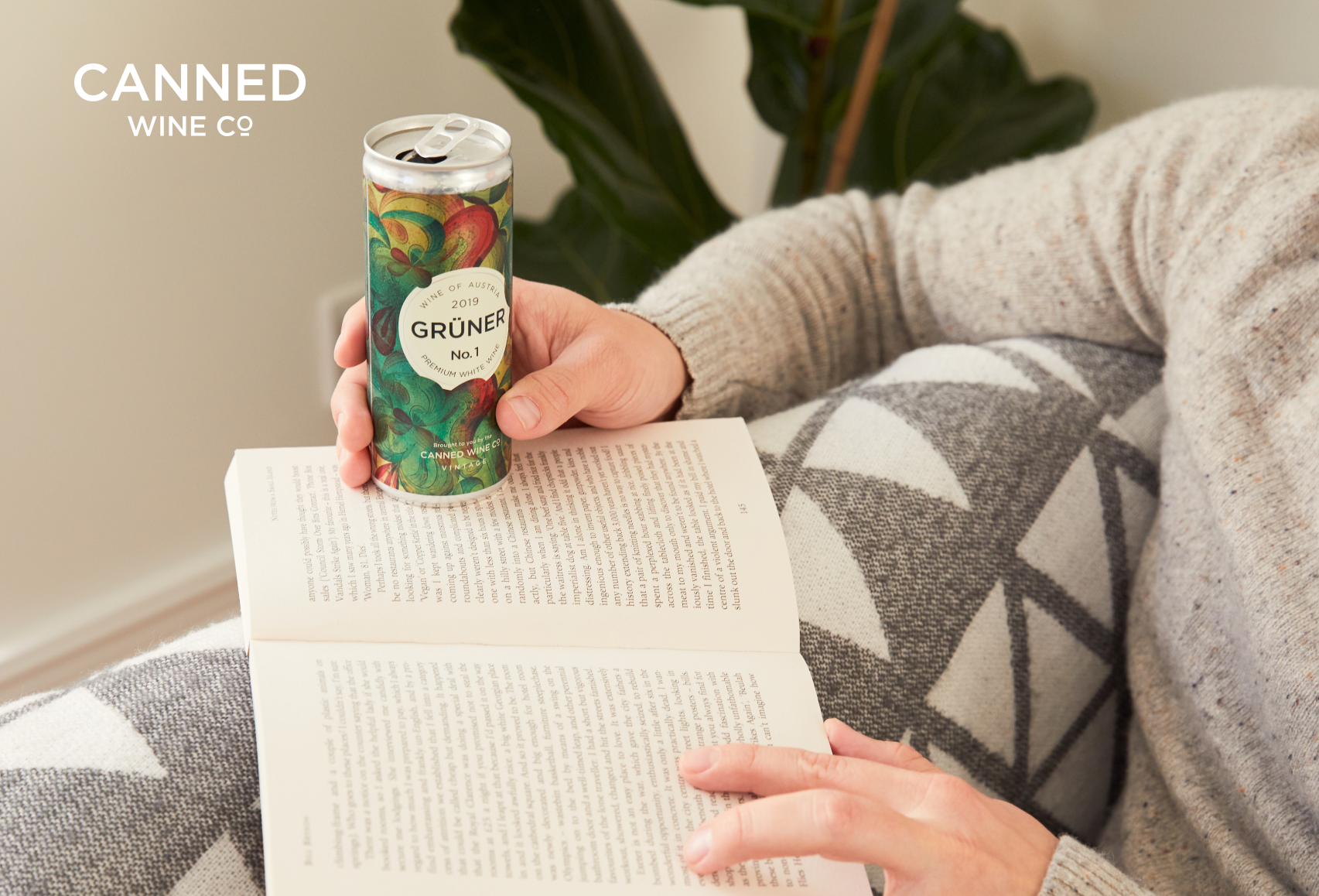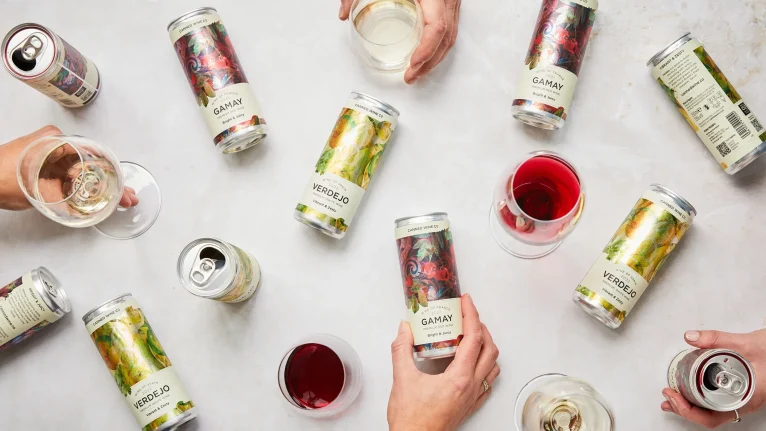Chapter 10 – How women are driving innovation in wine
A panel discussion taking centre stage at London Wine Fair 2024 hosted by UK Sales Manager, Abi Chell, to open conversations around diversity within the wine industry.

A panel discussion taking centre stage at London Wine Fair 2024 hosted by UK Sales Manager, Abi Chell, to open conversations around diversity within the wine industry.
Last week I had the pleasure of sharing the stage at London Wine Fair with several industry experts and moderated a panel discussion with the title: How are women driving innovation in wine?
Our superb panellists brought their expertise from all sectors of the wine industry:
Muriel Chatel, Managing Director, Sustainable Wine Solutions
Zoë Driver, Winemaker, Black Chalk Wine
Emma Penman, Wine Buyer, Waitrose
Kim Wilson, Managing Director, North South Wines
Danielle Youds, Head of F&B, Liverpool Philharmonic
Elena Whitehead, Brand & Marketing Manager, Canned Wine Co.
Organising the discussion alongside our Brand & Marketing Manager, Elena Whitehead, we chose to use the space to take an active role in encouraging conversations of empowerment within the industry. We wanted to highlight the positive impact women have on the development and progression of the trade.
Being in sales, I often experience male-dominated spaces at wine events or tastings which contrasts to our predominantly female team in the day-to-day at Canned Wine Co.
Additionally, reading industry reports like the Curious Vines Women in Wine report in collaboration with PROOF Insights, highlighting true experiences of women working within the trade, has also sparked conversations within our team. The report showed that 78% of women said that sexism and gender bias is an issue in the UK wine industry, with almost 50% of those surveyed saying they have considered leaving the industry due to challenges faced.
Taking insights from the report, our conversations at Canned Wine Co. have led to how we, as a team, feel empowered and how we can empower each other. We recognised the importance of talking openly about the topic and the immediate impact this has on actions taken or progressions made – and so it was timely to use the opportunity at one of the key events in the trade to open it up to the floor.
Our conversation at London Wine Fair began with a look into some of the biggest challenges and changes that the industry has seen in the past few years. Key themes formed around: changing audiences and consumers, more discerning buying habits over wine quantity or sustainable packaging, rising duty charges and an ever-changing landscape of policy regulation. Among this, it became evident that innovation within the industry is essential to contribute to a far more sustainable wine industry.
We then turned the conversation towards how and why the representation of women is so important, given the accelerating rate of change within the wine trade and growing pressures to innovate.
Above all, a common theme appeared to be the need for knowledge sharing and collaboration to encourage and drive innovation forwards. Different examples to support this included:
- Associations forming between women to foster strong connections and collaboration like CollectEve, a formation of 12 women-owned importers where Muriel Chatel is a founding member
- Role-models in positions of leadership or mentorship, where Emma Penman and Kim Wilson highlighted the value in learning from others in this way and using the relationships to visualise paths of progression
- Women in Wine events, which are felt to be such valuable occasions to connect with others, share ideas and encourage comfortable spaces to express opinions – a unique and uplifting element of the trade and one of the reasons as to why Elena Whitehead chose to return and stay in a career within the wine industry.

Throughout the discussions, it became obvious that diversity and innovation within wine forms an ongoing loop: diversity brings a broad range of perspectives and ideas to drive innovation which, in turn, creates a more interesting landscape within the trade and therefore continues to attract more diversity and talent into the space. Attracting and retaining women in the wine industry therefore was the concluding topic to our panel discussion.
Here, we looked at certifications such as B-corp or Positive Luxury’s Butterfly Mark which act as key indicators of sustainable cultures within the business,and being non-specific to the wine industry can help attract talent from outside of the industry – an all important factor in fostering diverse ideas and new approaches to challenges.
We can also learn from other sectors and initiatives, such as the ‘Women in STEM’ initiative to encourage women into the world of engineering – and which would have been a key motivator in Zoë Driver’s early career – or turn our heads to the Arts & Culture sector which actively supports diversity and inclusion, as Danielle Youds highlighted.
Following the discussion, our team is left with ideas of how we can seek out collaboration, find new opportunities, learn from experiences, and support one another. We are committed to creating spaces for a more diverse wine industry and breaking down barriers that form the more traditional trade. If we change nothing, nothing changes – so we will all commit to keep asking questions, being curious and challenging the status quo to find out the real ‘why’.




